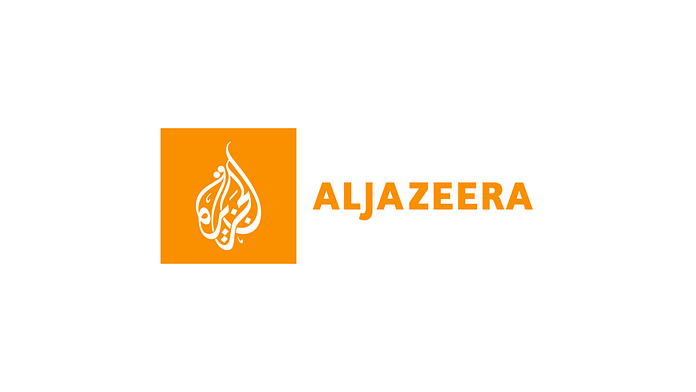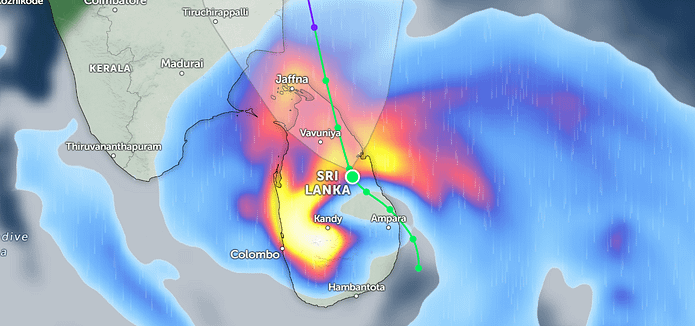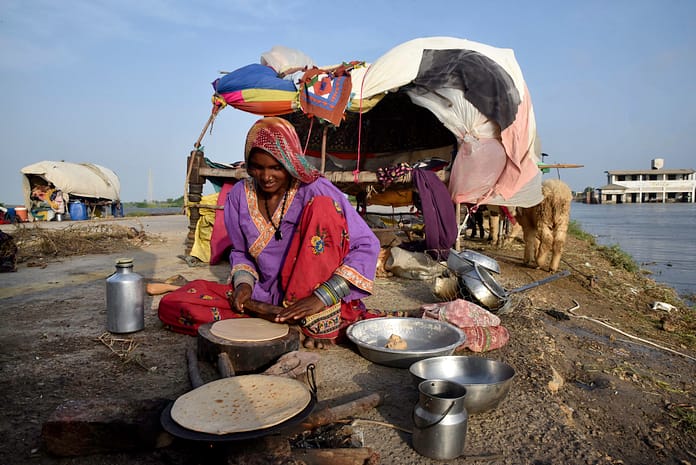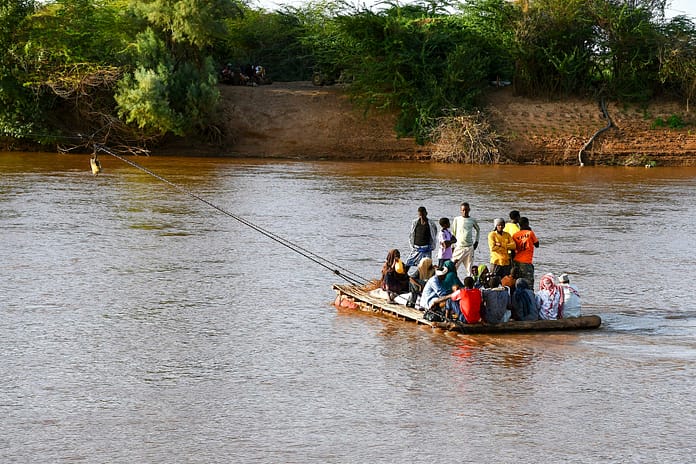
The International Water Management Institute (IWMI) launched its early warning, early action, early finance, or AWARE, platform in Colombo, Sri Lanka on May 20, 2025. The platform is a centralized hub for early warning information and coordinated anticipatory response planning. Leveraging advanced technology, it monitors weather conditions in real time and delivers actionable alerts on impending threats. AWARE is designed to ensure that hazard warnings trigger prompt on-the-ground action and funding to protect vulnerable communities, strengthening disaster preparedness and resilience across the country.
Sri Lanka’s Disaster Management Centre (DMC) and other humanitarian actors will use the platform to institutionalize anticipatory disaster mechanisms in the country across national ministries and district authorities.
Sampath Kotuwegoda, Director General of DMC, said, “The AWARE platform provides us with the tools and triggers needed to respond faster and more effectively to extreme weather events. We are taking steps to train district-level officials and integrate AWARE into national contingency planning.”
The AWARE platform integrates diverse data streams, including meteorological forecasts and socio-economic indicators, to provide a comprehensive picture of risk. It connects forecast-based triggers to predefined response actions and financial disbursements, ensuring that early warnings translate swiftly into life-saving measures on the ground.
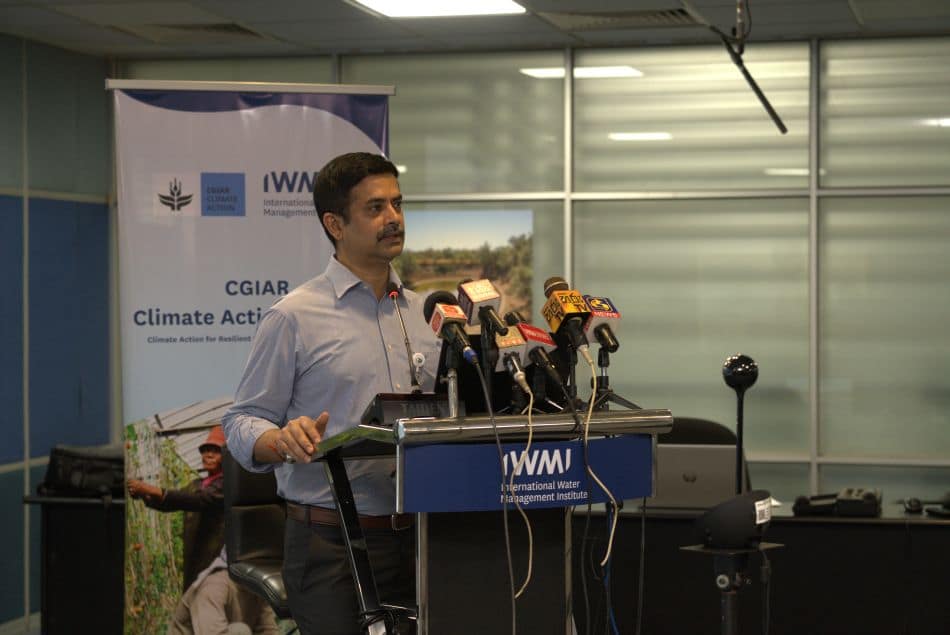
The system was piloted in Sri Lanka in 2023 and 2024 with simulations of flood and drought at community level in the Nuwara Eliya and Anuradhapura districts respectively.
During the flood simulation, residents received an early warning SMS from the DMC about heavy rainfall forecast, prompting them to reinforce defenses and evacuate before the flood. The residents also received cash vouchers to support their immediate needs. The exercise demonstrated that acting early can significantly reduce disaster impacts and help communities better manage the risks.
Farmers in the Anuradhapura district have “faced immense difficulties, especially during the Yala season,” as Madduma Bandara Rathnayake, a farmer from the village of Orugodagalla, who took part in the drought simulation, recounts. Rathnayake said the farmers were taught to create a three-month anticipatory plan to prepare for the onset of drought. “By giving us advance warning of a disaster like drought, we can reduce the harm it does. We now have the knowledge to be prepared and to cope.” Rathnayake said there were around 170 farmers growing rice and maize in the area. He said they knew that they would face more challenges in the future because of the changing environment but that they had now been empowered to put anticipatory plans in place.

Going forward, IWMI, the Disaster Management Centre, local governments and district communities will build on the strong foundation laid by the pilot projects and further scale proactive disaster risk management across Sri Lanka. By combining cutting-edge technology with local leadership and preparedness, the AWARE platform will be poised to transform how the country anticipates and responds to climate hazards. As the system expands nationwide, it offers a promising path toward protecting lives, livelihoods and ecosystems proving that with the right tools and partnerships, Sri Lanka is now truly aware and ready to act before disaster strikes.
The launch of AWARE marks not only a milestone for Sri Lanka but also a significant contribution to global resilience efforts. The AWARE platform has already been deployed in Nigeria, Senegal and Zambia, and is currently being piloted in Guatemala, Kenya, Morocco, the Philippines and Rwanda. It directly supports the Sendai Framework for Disaster Risk Reduction by shifting from reactive response to proactive risk reduction, while also aligning with the Paris Agreement’s call for strengthened climate adaptation and early warning systems. As countries strive to meet the UN’s “Early Warnings for All” initiative, AWARE offers a replicable model for integrating early warning, early action and early finance into national and local systems. Its emphasis on community-level activation, timely financing and data-driven decision-making positions it as a leading innovation in anticipatory disaster risk management — helping ensure that no one is left behind when the next climate shock hits.


